Mindset of Dharma
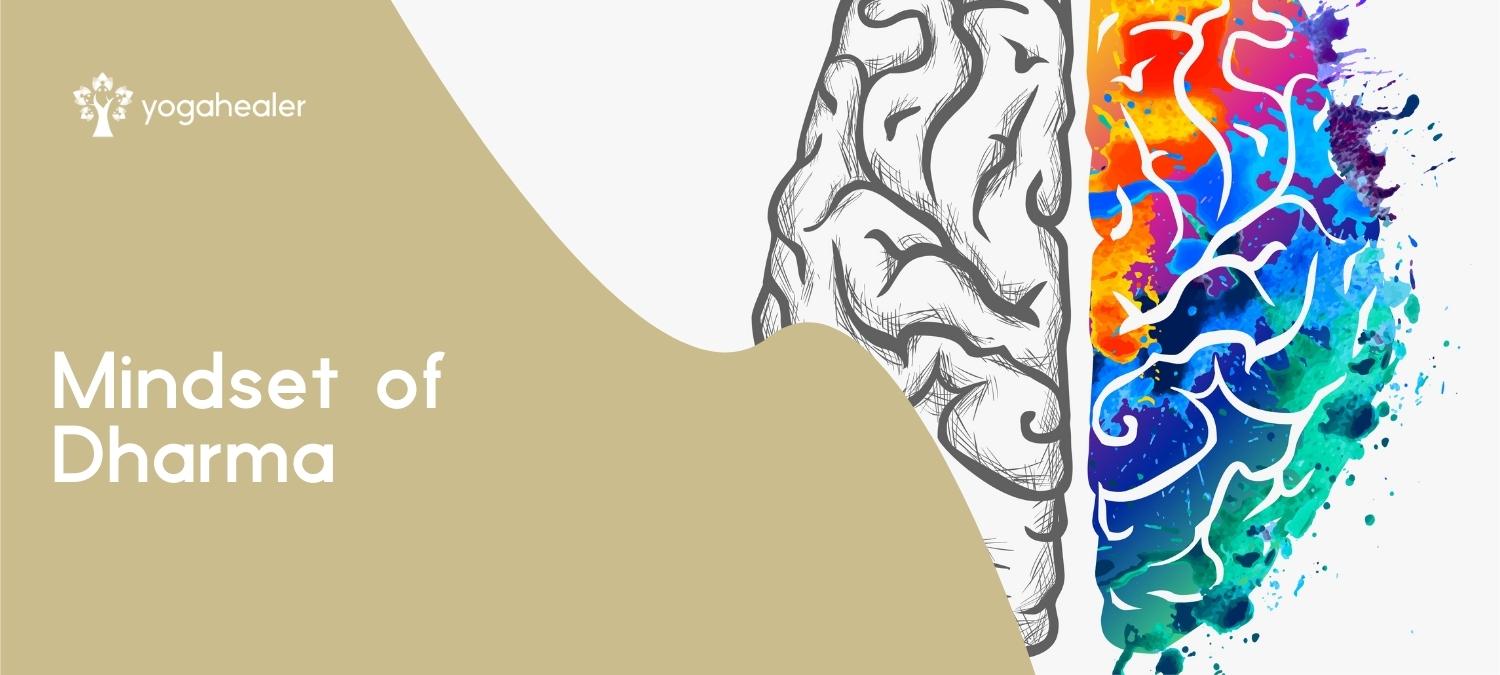
Would you prefer to hear about this topic? Click to listen to Mindset of Dharma on the Yogahealer podcast.
Dharma is about living your life aligned to your deeper purpose. It is also the focus of my latest book, “Master of YOU”, which came out on March 17th, 2020. On my last post, I explained What is Dharma, and how it has been inspiring my Awake Living Course and, ultimately, this last book. Now, we will start talking about how you can actively align your time and space in order to become who you want to be next.
What I’ve learned, over the years, working with people, is that there are certain perspectives that help the process of being and becoming. These perspectives are an ethos, they’re an intentional culture, a set of mindsets if you will.
This is a list that will help you achieve your goals and thrive in life.
#1 Orient Towards Thrive
This seems simple. But think about your day. Was there any given moment when your awareness was orienting towards more chaos or heading towards self-destruction? That is when you have to step in and orient your thoughts towards thriving. If you are conscious something will not add to who you want to become, you rearrange your mind, and fill it with positive, constructive thoughts.
#2 Adopt a Cosmo-centric Viewpoint
To have a cosmic-centric viewpoint is to have a view of where you are in the cosmos. It is a perspective of deep time and deep space. In other words, you should look at your life as not just your life, but a string of lives that go back to the history of the cosmos, the Big Bang, and to what was before the Big Bang. If you see where you fit in the hole, it shifts your perspective and helps you orient your life towards your purpose.
People often tend to make a mountain out of a molehill. A cosmic-centric viewpoint helps us get perspective and focus on the lesson, or challenge, right in front of us. We need to learn to see ourselves as part of this long journey of evolution that created humans with self-reflective awareness, that created all these amazing life forms and created me here, now. Then ask yourself, where do I fit into the whole?
#3 Evolve Your Identity
Evolving your identity is part of your ethos. You first need to accept who you are and that you can evolve. You can look at where you have been and consciously decide where you want to go. Evolving, or nurturing, your identity is a perspective that helps you see different phases of your life as evolutions.
If you look back a few years, maybe you can see that the habits of that person, the beliefs, and maybe even the relationships that person had, were not oriented towards thriving. If you’ve had a bigger perspective than your own ego, chances are you’ve been on an evolutionary path and things have changed. You have realized that in order to accomplish great things, you need to learn, stretch, grow and gain new skills.
Who you are is not static, you’re not a noun, you’re a verb. And sometimes, that means changing the people you develop relationships with. In order to evolve your identity, you need to evolve into the type of person that knows the kind of people in the same frequency.
#4 Nurture and Nourish Your Five Bodies
The five bodies are the five koshas, in Ayurvedic language. Your physical body is your Annamaya Kosha, also called your food body. Your energy body is your Pranamaya Kosha. Your mental, emotional body is your Manomaya Kosha. Your intuitive body is your Vijinanamaya Kosha, and your bliss body is your Anandamaya Kosha.
Consciousness shoots through all five bodies. Having a perspective of nurturing and nourishing your five bodies, helps you see when you’re stuck in your mind, your mental body, or your physical body. Being stuck in your mind is the biggest trap. It keeps you static and out of touch with your intuition.
#5 Heed the Rhythm and the Cycles
All life has a rhythm and moves in a cycle. When you embrace the circadian rhythm, you unlock deep energy. But when you violate the natural rhythm, you suffer. Living out of rhythm invites unnecessary drama into your life. If you feel like you need more information about how to develop habits that are connected with the circadian rhythm, check out my first book, Body Thrive.
#6 Think Big, Test Small, Fail Fast, Learn Always
I borrowed this point from design thinking, part of the Lean Startup methodology. According to this, you should always think big, but test your idea in a small environment. This allows you to test your idea immediately, but also fail faster and learn from that failure. Testing your ideas is the difference between strategizing and daydreaming.
This is an incredible tool for those who have a perfectionist mindset. Stop planning for perfection and start doing something. You will learn more from your small failures, than from never trying. I really go deep on this one with my Awake Living students. You should aim to put one foot in front of the other, because over time that leads to evolutionary growth.
#7 Invest in Yourself
Most of us have been raised to invest our money on mutual funds or homeownership, but how many of us were taught to invest in ourselves? Small investments in yourself lead to a phenomenal life. And when investing in yourself, you should aim for high quality and low quantity. You want to invest in a way that you make a good return on your investment.
Our courses, for example, are not cheap. But the reasoning behind our prices is effectiveness. And when you really invest in yourself, you lean in and actually do the work that needs to be done. What you need to realize, is that you will always be your best investment. And investing in yourself also means choosing the small habits that help you feel great tomorrow.
#8 Embrace a Solid B Minus
When you are always aiming towards an A-plus, you can get what is called analysis paralysis. You are overthinking things and not acting on them. This type of mindset starts at a very young age, it is not something people learn as adults. It happens when people are rewarded on their performance, and develop a fear of failure.
Ask any successful person, ask entrepreneurs that are successful, small business owners that are just meeting the marketplace with innovation. what you’ll find is they’re constantly pivoting, learning, growing, and trying new things. And if they’re trying to do all that perfectly, nothing happens. Apply that to you. What do you need to experiment more with? Just run the experiment. Run it to learn, not to perform.
#9 Trust Your Desire
Trusting your desires is all about Shakti. Are you connected to your bigger dream? If you have no idea what your dreams are, you can have a Dream Conversation with us, or check our Awake Living videos. You want to awaken your ambition and figure out what the next chapter of your life is going to be.
When you realize what it is you desire, you need to act on it. Many of us have been told to delay desire, especially if you are a woman. But when you talk to successful people, they often just go for it. So you need to trust your desire, and act on it.
#10 Leverage Your Strengths
Everyone is born with certain natural abilities and chances are, you’ve cultivated those natural abilities, because they were easier to cultivate than your unnatural abilities. When you leverage your deepest strengths, you step deeper into your Dharma. If you know what your strengths are and you can communicate with them, people can get a hit of where you can be honestly most useful to them. They are better able to collaborate with you, and learn from you.
#11 Learn, mentor, master, co-create
What is fascinating to me, about this one, is that you don’t master before you mentor. Years ago when I wrote the values for Yogahealer I put a master before mentor. That was a mistake. Research has shown people are able to mentor right after learning something. And by mentoring, they master the subject. When you are teaching someone else, you learn better. That happens because while communicating with someone you can easily find the gaps in your knowledge base, and fix them.
#12 Shift from a consumer to collaborator
We are often spoken to in a consumer mindset. But what if you look at your customers or clients as collaborators, you start listening to what people need that you can provide. From the beginning, at Yogahealer, I listened to what questions people had and turned them into workshops. Then people coming out of certain workshops had more questions, so we turned them into more workshops. We created courses that were long, and people could really bond and create really healthy, strong relationships that were super progressive. This is a great collaborative example.
These are the 12 ethos that help you create a Mindset of Dharma. “Master of You” comes with access to a free workbook, so you can get into the habits that will drive you towards success. Don’t forget to pre-order it, and start thriving!
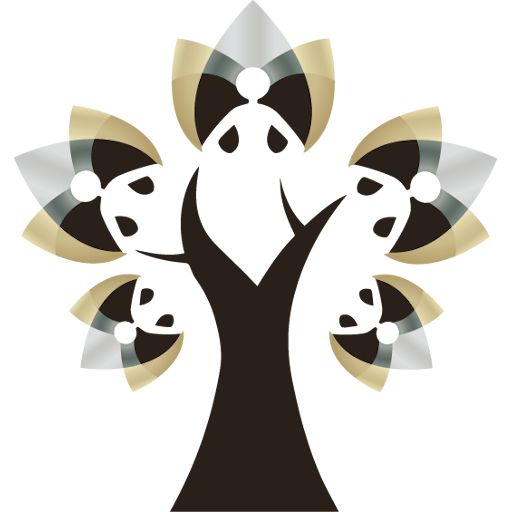






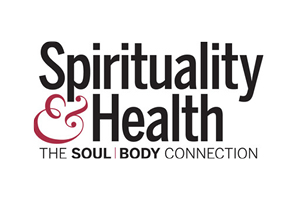





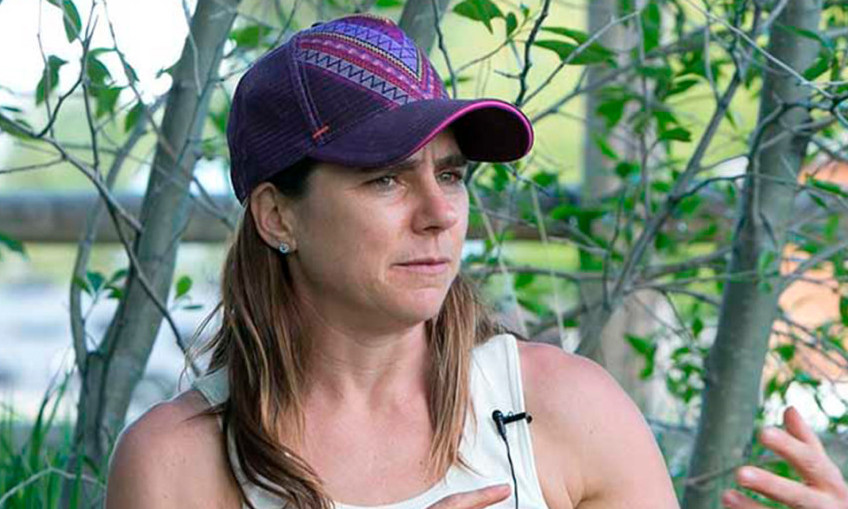
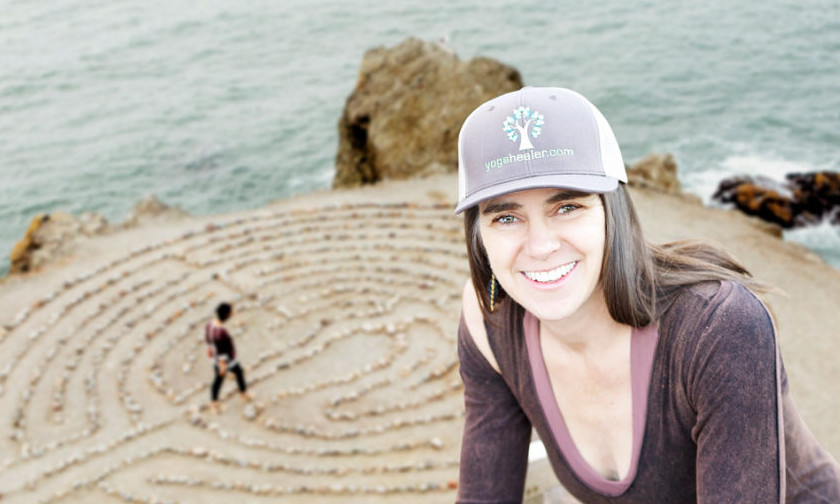
Comments
No comments yet, be the first to comment